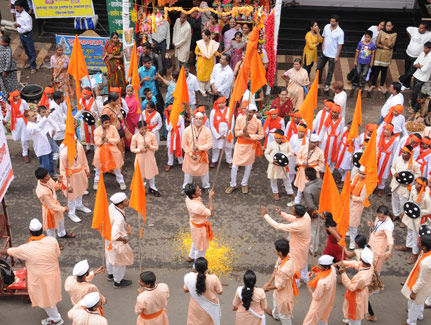People & Culture
The culture of any place is always determined from its people, religion, language, cuisine and festivals. Mumbai has an assortment of people from various communities and subsequently they follow different religions. Since the metropolitan is observing modern trends, here people enjoy participating in all festivals irrespective of caste, creed and color. Another reason could be the influence of Bollywood, where a potpourri of multi-ethnic culture is observed. The cultural heritage of Bombay presents a combination of old and new. The people of the 'Film City of India' seek to follow the hip-hop lifestyle of the celebrities residing here. The 'bindaas' or carefree approach of the Mumbaikars comes alive in their dialect of Mumbaiya Hindi too.
-
People
Mumbaikar or Bombayite is the term used for the inhabitants of Mumbai. Similar to the people in other parts of India, Mumbaikars are lively people, who live life to its fullest. Mumbai has a transfusion of various communities, following different religions and customs. -
Religions
Mumbaikars tend to get busy in their demanding schedules of life, but when it comes to religion, people appear to be highly devout. Religion plays an important role in the lives of people in Mumbai. Like any other part of India, Hinduism is the major religion observed by most of the residents of Bombay. -
Languages
Marathi is recognized as the official language of the Mumbai city of India. It is the most widely spoken language in the city. Apart from Marathi, there are many other languages that are spoken and understood in Bombay. Mumbaiya or Bambaiya Hindi is the slang language of Mumbaikars. -
Cuisine
Food simply means scrumptious dishes in Mumbai. The Chowpati Beach always reminds one of the lip-smacking 'Bhel Puri', a fast-food made of puffed rice, with lots of chillies, sauces and chopped onions. A typical Bombay platter consists of curries, rice, curd, chapattis, vegetable, salad, sweets etc.



